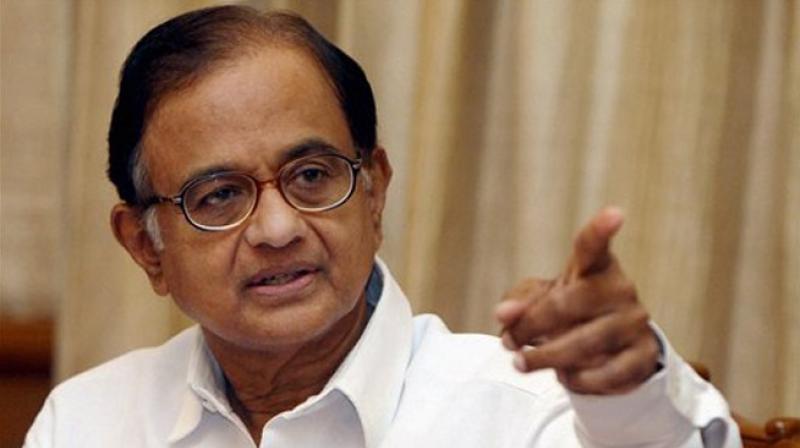P Chidambaram bats for AAP in Supreme Court
The L-G was required to first seek a clarification from the council of ministers or he can ask them to reconsider the decision, he added.

New Delhi: Senior Congress leader and former home minister P. Chidambaram made a fervent plea in the Supreme Court to ensure that the L-G functioned within the sphere of democratic governance to reflect the aspirations of the people of Delhi.
Appearing for the Kejriwal government, Mr. Chidambaram submitted before a five judge constitution bench of Chief Justice Dipak Misra and justices A.K. Sikri, A.M. Kanwilkar, D.Y. Chandrachud and Ashok Bhushan, that it is the duty of the L-G to act under the aid and advice of the council of ministers of Delhi.
Quoting the provisions of the government of NCT Delhi Act, Mr. Chidambaram submitted that L-G was not a Viceroy of the British crown as suggested by the Delhi HC. Even in the case of difference of opinion the L-G cannot sit over it or refer the matter automatically to the President for his consideration.
The L-G was required to first seek a clarification from the council of ministers or he can ask them to reconsider the decision, he added.
Any interpretation by the highest court relating to Article 239 AA of the Constitution relating to the powers of the National Capital Territory of Delhi must advance the cause of democracy. He argued that the court’s interpretation must reflect the principle of democratic governance of the cabinet and it must not weaken the democracy. Counsel pointed out that the L-G as a representative of the President could exercise the functions to the extent the President deems fit’.
Earlier during the course of submissions by senior counsel Gopal Subramanium, the CJI observed that there could not be any impediment by the L-G in the day-to-day functioning. The CJI pointed out normally there should not be any difference of opinion between the council of ministers and the L-G if the decision is within the parameters of constitutional sanctions. The L-G could not say 'no’ to every decision of the government. The CJI was responding to the submissions of Mr. Subramanium who said that Article 239AA of the Constitution envisages a democratic framework for the Delhi government. By his overarching powers, the L-G could not set at naught the functions of a democratically elected government who are responsible to the people.
